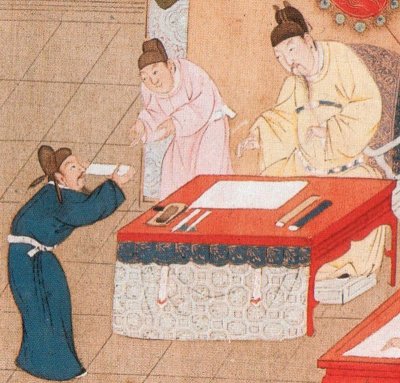Ming Dynasty Government
 The Ming Dynasty ruled China from 1368 and 1644. This era was characterized by effective governing and social stability. Unlike other dynasties, the Ming Dynasty had one department, the secretariat. This department controlled six ministries which were headed up by a minister and the daily affairs were looked after by a director. All this was under the direct control of the Emperor.
The Ming Dynasty ruled China from 1368 and 1644. This era was characterized by effective governing and social stability. Unlike other dynasties, the Ming Dynasty had one department, the secretariat. This department controlled six ministries which were headed up by a minister and the daily affairs were looked after by a director. All this was under the direct control of the Emperor.
The Censorate
In 1430, the Censorate, which was a branch of the centralized government, was re-established and institutionalized. The people in this branch of government were called censors and they were very powerful bureaucrats who had direct access to the Emperor.
The provincial administrators were overseen by a travelling inspector who was sent from the Censorate. They had the power to impeach officials for dereliction of duty.
Grand Secretariat
The civil administration of China remained unchanged for about 2,000 years. The Ming Dynasty government appointed Grand Secretaries, who were basically mid-level officials, to help the Emperor with paperwork. The secretariat coordinated between the six different ministries.
Six Ministries
The Six Ministries were responsible for various administrative functions of the state, such as Revenue, Personnel, War, Rites, Public Works and Justice. The Ministry of Personnel handled all matters relating to government employees such as appointment, assessment of work and promotions.
The Ministry of Revenue was in charge of collecting taxes, state revenues, and currency. The Ministry of Rites was in charge of armed forces and the courier system. The Ministry of Justice was responsible for the judicial and penal process, but it never had any jurisdiction over the Censorate.
The Ministry of Works was in charge of all government construction projects and maintenance of roads. They were also responsible for the standardization of weights and measures in the country.
During this time, China had one of the most efficient bureaucracies in the entire world. Merit was valued more than connections. This ensured that the Ming Dynasty government was efficient and that China prospered.
